高一高二高三收藏——2021高考英语复习之重点词汇短语练习七
作者:未知 时间:2020-12-02 阅读:( )
2015年全国卷I阅读理解B篇重点单词语块
1. baskets of perfect red strawberries一篮篮极好的红色草莓
2. red-painted [redˈpeɪntɪd] adj. 刷有红漆的
3. most of all 最重要的是
4. amazing, large, soft and round red tomatoes又大又软,圆润红透,令人惊喜的西红柿
5. disappointed [ˌdɪsəˈpɔɪntɪd] adj. 失望的
6. vine-ripened [vaɪˈraɪpənd] adj. 蔓上成熟的
7. refuse to do sth. 拒绝做某事
8. attractive [əˈtræktɪv] ] adj. 诱人的
9. get sth. home 把某物买回家
10. freezing [ˈfri:zɪŋ] adj. 极冷的
11. the freezing Northeast 寒冷的东北地区
12. a terribly fun place to spend time this winter一个非常有趣的可以度过冬天的地方
13. pack [pæk] vt. 收拾(行李)
14. sunshine [ˈsʌnʃaɪn] n. 阳光;日光
15. warmth [wɔ:mθ] n. 温暖;暖和
16. vitamin [ˈvɪtəmɪn] n. 维生素
17. leave for the land of warmth and vitamin C前往充满温暖和维生素C的地方
18. orange trees 橘子树
19. touch down 降落;着陆
20. prayer [preə(r)] n. 祷告,祈祷
21. gratefulness [ˈgreɪtflnəs] n. 感激,感恩
22. send up a small prayer of gratefulness做一个小小的感恩祈祷
23. swimming pools 游泳池
24. wine tasting 品酒
25. pink sunsets 粉红色的落日
26. at normal evening hours在平常的傍晚时分
27. particularly to one's taste特别适合某人的胃口
28. dull [dʌl] vt. 变迟钝
29. cold-weather root vegetables寒冬根茎蔬菜
30. adventure to the farmers' market去农贸市场的奇遇
31. prove to be more than worth the early wake-up call结果证明被早早叫醒是很值得的
32. found [faʊnd] vt. 创建
33. set up tents 搭建帐篷
34. rain or shine 不论是雨或是晴
35. unfailingly [ʌnˈfeɪlɪŋli] adj. 可靠;一贯;永久
36. tasteless [ˈteɪstləs] adj. 无味的;不可口的
37. home in (on ...) 走向
38. uncertainty [ʌnˈsɜ:tnti]n. 不确定;犹疑
39. stand [stænd] n. 货摊
40. the size of one's fist 某人拳头般大小
41. the real deal 货真价实的买卖
42. back home in New York在纽约的家中
43. in sight 被看到
44. deepen [ˈdi:pən] vi. 加深,变强烈
45. one of the suppliers for某某的供应商之一
46. a newly opened restaurant新开的一家餐厅
47. luckily for sb. 算某人幸运
48. plan to have dinner 计划吃晚餐
49. menu [ˈmenju:] n. 菜单
50. order [ˈɔ:də(r)] vt. 点餐;点单
课后练习(一)
The freezing Northeast hasn't been a terribly fun place to spend time this winter, so when the chance came for a weekend to Sarasota, Florida, my bags were packed before you could say "sunshine". I left for the land of warmth and vitamin C(维生素 C), thinking of beaches and orange trees. When we touched down to blue skies and warm air, I sent up a small prayer of gratefulness. Swimming pools, wine tasting, and pink sunsets (at normal evening hours, not 4 in the afternoon) filled the weekend, but the best part- particularly to my taste, dulled by months of cold- weather root vegetables- was a 7 a.m. adventure to the Sarasota farmers' market that proved to be more than worth the early wake-up call.
The market, which was founded in 1979, sets up its tents every Saturday from 7:00 am to 1 p.m, rain or shine, along North Lemon and State streets. Baskets of perfect red strawberries, the red-painted sides of the Java Dawg coffee truck; and most of all, the tomatoes: amazing, large, soft and round red tomatoes.
Disappointed by many a broken, vine-ripened(蔓上成熟的) promise, I've refused to buy winter tomatoes for years. No matter how attractive they look in the store, once I get them home they're unfailingly dry, hard, and tasteless. But I homed in, with uncertainty, on one particular table at the Brown's Grove Farm's stand, full of fresh and soft tomatoes the size of my fist. These were the real deal- and at that moment, I realized that the best part of Sarasota in winter was going to be eating things that back home in New York I wouldn't be experiencing again for months.
Delighted as I was by the tomatoes in sight, my happiness deepened when I learned that Brown's
Grove Farm is one of the suppliers for Jack Dusty, a newly opened restaurant at the Sarasota Ritz Carlton, where- luckily for me- I was planning to have dinner that very night. Without even seeing the menu, I knew I'd be ordering every tomato on it.
1. What did the author think of her winter life in New York?
A. Exciting. B. Boring. C. Relaxing. D. Annoying.
2. What made the author's getting up late early worthwhile?
A. Having a swim.
B. Breathing in fresh air.
C. Walking in the morning sun.
D. Visiting a local farmer's market.
3. What can we learn about tomatoes sold in New York in winter?
A. They are soft.
B. They look nice.
C. They taste great.
D. They are juicy.
4. What was the author going to that evening?
A. Go to a farm.
B. Check into a hotel.
C. Eat in a restaurant.
D. Buy fresh vegetables.
参考答案:BD BA
课后练习(二)
The traffic signals along Factoria Boulevard in Bellevue, Washington, generally don't flash the same length of green twice in a row, especially at rush hour. At 9:30am, the full red/yellow/green signal cycle might be 140 seconds. By 9:33am, a burst of additional traffic might push it to 145 seconds. Less traffic at 9:37am could push it down to 135. Just like the traffic itself, the timing of the signals changes.
That is by design. Bellevue, a fast-growing city just east of Seattle, uses a system that is gaining popularity around the US: intersection(十字路口) signals that can adjust in real time to traffic conditions. These lights, known as adaptive signals, have led to significant declines in both the trouble and cost of travels between work and home.
"Adaptive signals can make sure that the traffic demand that is there is being addressed, " says Alex Stevanovic, a researcher at Florida Atlantic University.
For all of Bellevue's success, adaptive signals are not a cure-all for jammed roadways. Kevin Balke, a research engineer at the Texas A&M University Transportation Institute, says that while smart lights can be particularly beneficial for some cities, others are so jammed that only a sharp reduction in the number of cars on the road will make a meaningful difference. "It's not going to fix everything, but adaptive signals have some benefits for smaller cities," he says.
In Bellevue, the switch to adaptive signals has been a lesson in the value of welcoming new approaches. In the past, there was often an automatic reaction to increased traffic: just widen the roads, says Mark Poch, the Bellevue Transportation Department's traffic engineering manager. Now he hopes that other cities will consider making their streets run smarter instead of just making them bigger.
1.What does the underlined word "that" in paragraph 2 refer to?
A.Increased length of green lights.
B.Shortened traffic signal cycle.
C.Flexible timing of traffic signals.
D.Smooth traffic flow on the road.
2.What does Kevin Balke say about adaptive signals?
A.They work better on broad roads.
B.They should be used in other cities.
C.They have greatly reduced traffic on the road.
D.They are less helpful in cities seriously jammed.
3.What can we learn from Bellevue's success?
A.It is rewarding to try new things.
B.The old methods still work today.
C.I pays to put theory into practice.
D.The simplest way is the best way.
参考答案:CDA
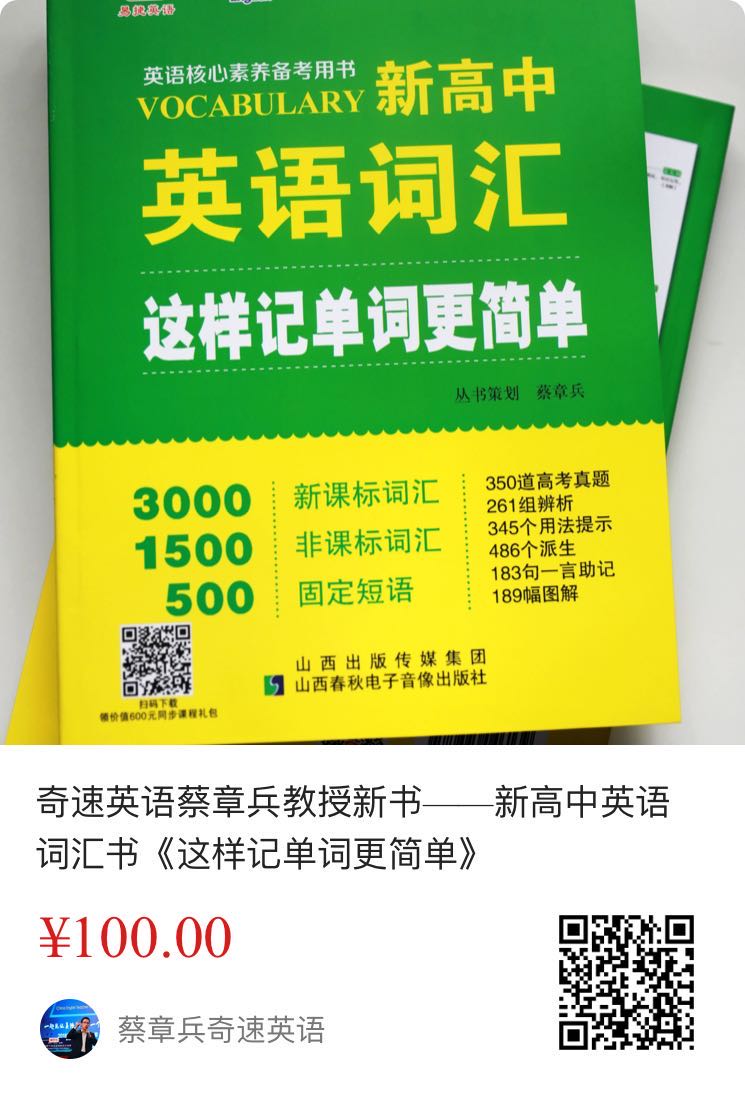
奇速英语将一直致力于改变和引领中国英语词汇和阅读教学。请让孩子参加本次学习,完成全部课程,孩子的词汇量至少提升2000+!除此之外,以上英语冬令营课程也可以在线学习,奇速英语小学在线课程、初中英语同步涨分课程(初一、初二、初三)、高中英语同步涨分课程(高一、高二)在线试听可以点击链接报名http://www.qisuen.cn/wx/user/account/elevenActivityIndex?fromer=21

(英语冬夏令营单词阅读课程扫码联系老师参与课程报名)
想来四川旅游,有娃的家长可以了解一下奇速英语千人冬令营夏令营!全程英语单词阅读涨分的。12月报名最大优惠。旅游学习两不误。
-
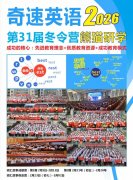
2026寒假高一英语冬令营河南驻马店、济源寒假英语培训班及奇速英语冬令营优势特色
(136)人喜欢 2026-01-20 -
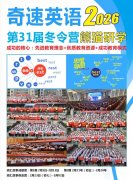
2026寒假高二英语冬令营如何选择,河南信阳、周口寒假英语培训班及奇速英语冬令营优势
(58)人喜欢 2026-01-20 -
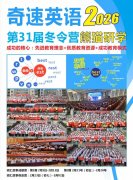
2026福建泉州初二.高二英语寒假冬令营哪个比较好、全国十大英语单词冬令营品牌推荐
(92)人喜欢 2026-01-15 -
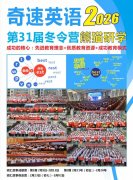
2026福建福州寒假高一冬令营令营哪个比较好、全国十大英语冬令营品牌奇速英语集训班推
(145)人喜欢 2026-01-15 -
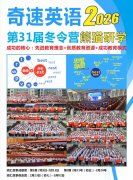
2026广东汕头市、佛山市寒假初一高一冬令营哪个机构好、英语集训营冬令营一次要多少费
(134)人喜欢 2026-01-15 -
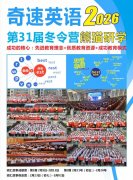
2026河北高一英语寒假冬令营哪家好?邢台、保定、廊坊、承德口碑好的奇速英语冬令营推
(210)人喜欢 2026-01-15 -

高三家长必看!这个寒假,帮孩子的高考英语再冲 20+!奇速英语高考专项冬令营紧急开营
(198)人喜欢 2025-11-26 -

寒假高一英语冬令营河南驻马店、济源寒假英语培训班及奇速英语冬令营优势特色
(90)人喜欢 2025-11-13 -
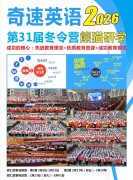
高二英语寒假冬令营如何选择,河南信阳、周口寒假英语培训班及奇速英语冬令营优势特色
(154)人喜欢 2025-11-13 -
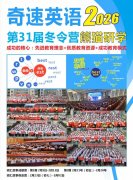
2026寒假高一英语冬令营河南驻马店、济源寒假英语培训班及奇速英语冬令营优势特色
(177)人喜欢 2025-11-05
时文精读与故事记单词,这是我用过的英语成绩提

暖冬筑梦,英启新章——奇速英语冬令营,让每个

暖冬筑梦,英启新章——奇速英语冬令营,让每个

不负暖冬,英你闪耀——奇速英语冬令营,解锁孩

不负暖冬,英你闪耀——奇速英语冬令营,解锁孩

不负暖冬,英你闪耀——奇速英语冬令营,解锁孩

不负暖冬,英你闪耀——奇速英语冬令营,解锁孩

不负暖冬,英你闪耀——奇速英语冬令营,解锁孩

不负暖冬,英你闪耀——奇速英语冬令营,解锁孩

不负暖冬,英你闪耀——奇速英语冬令营,解锁孩

不负暖冬,英你闪耀——奇速英语冬令营,解锁孩

不负暖冬,英你闪耀——奇速英语冬令营,解锁孩

不负暖冬,英你闪耀——奇速英语冬令营,解锁孩

暖冬启智,英领成长 —— 奇速英语冬令营,让孩

暖冬启智,英领成长 —— 奇速英语冬令营,让孩

寒假超车正当时,奇速英语冬令营让孩子与优秀并

冬藏锋芒,英绽新程 —— 奇速英语冬令营,解锁

冬藏锋芒,英绽新程 —— 奇速英语冬令营,解锁

冬藏锋芒,英绽新程 —— 奇速英语冬令营,解锁

寒假燃动英语力,奇速营启新征程 —— 奇速英语
